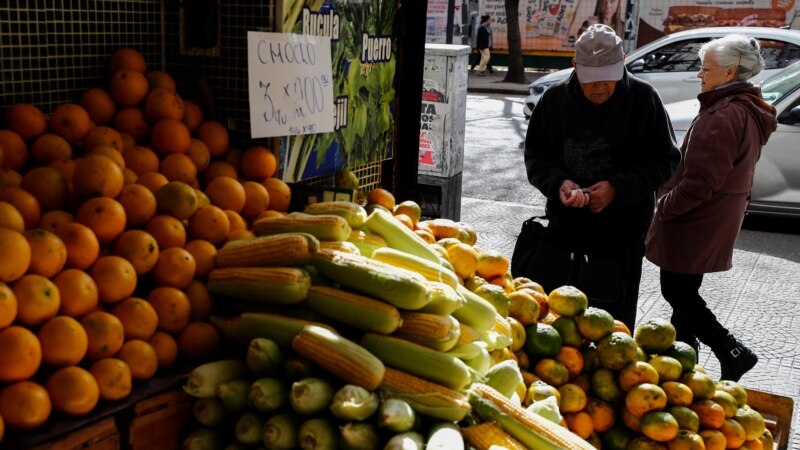
Argentina will adjust interest rates to stop the dollarization of its economy, the Central Bank will have more freedom to control foreign currency and agreements with the IMF will be accelerated.
These are some of the measures advanced on Sunday by the country’s Ministry of Economy, which will announce more initiatives during the week, after knowing one of the worst inflation figures on Friday.
The Central Bank of Argentina will adjust the rate, increase “intervention in the exchange market and will manage the pace” of the progressive devaluation of the peso, explained the information from the Ministry of Economy.
It is a race to contain prices, which rose 8.4% in April compared to the previous month, with an accumulated variation of 32% so far this year and year-on-year inflation of 108.8%.
This places Argentina in second place in the World Bank’s classification of countries with the highest food inflation after Lebanon.
The team of the Minister of Economy, Sergio Massa, met all Saturday and advanced a package of economic measures to control the rise in prices.
Economic analysts noted that the consumer price index for April is the highest monthly inflation rate since April 2002, when the rise in prices exceeded 10%.
The ministry announced the acceleration of the agreements with the IMF, the exchanges with China (Massa will travel to Beijing on May 29) and the guarantee scheme of the so-called BRICS block (Brazil, Russia, India, China and South Africa) for imports and currency exchange with Brazil.
There will be incentives to sustain the level of domestic consumption by promoting the consumption of products of national origin, such as decreases in interest rates for credit cards or the increase in refunds to vulnerable sectors for debit card consumption.
There will also be measures to sustain the level of economic activity in the country, such as tax relief for small and medium-sized companies, elimination of tariffs, and generation of dumping and protection regulations to improve competitiveness and reduce the prices of imports of certain products.
Approval for the importation of capital goods will be accelerated and a new Trade Operations Analysis Unit will be created to coordinate with other national agencies and be able to respond more quickly to price increases and changes and speed up foreign trade, among other measures. .
In addition, the Central Market will adopt a new role as a direct importer of food with the aim of reducing the effective sale price to the public of fresh products such as fruits, vegetables, and meat, as well as non-perishable dry products.
The skyrocketing prices increased poverty, which currently affects almost 40% of the population, that is, some 18.5 million people. Child poverty rose to 54.2%, covering six million children under 15 years of age.
Inflation is one of the main concerns of Argentines along with insecurity, according to public opinion polls released ahead of the presidential elections in October, in which the current president Alberto Fernández will not appear.
The long drought that the country is experiencing affected crops, reducing the inflow of foreign currency, which is added to the strong depreciation of the peso in financial markets in a context of strict capital controls.
Connect with the Voice of America! Subscribe to our channel Youtube and activate notifications, or follow us on social networks: Facebook, Twitter and Instagram.




![[Img #74662]](https://thelatestnews.world/wp-content/uploads/2024/12/Organisms-with-the-shortest-life-150x150.jpg)









